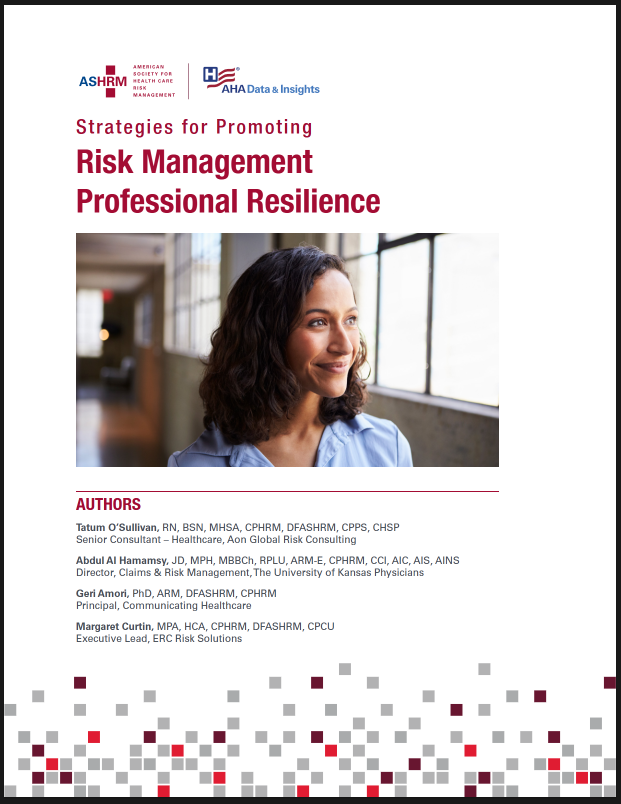
White Paper: Strategies for Promoting Risk Management Professional Resilience
This white paper addresses the emotional and psychological challenges faced by health care risk professionals. It highlights the negative perceptions and emotional burdens these professionals endure, often leading to significant stress and burnout.
Key Psychological States
- Imposter Phenomenon: Feelings of self-doubt and being a fraud despite evidence of competence.
- Burnout: Emotional exhaustion, depersonalization, and a sense of ineffectiveness at work.
- Depression: Persistent sadness, loss of interest in activities, and physical symptoms like fatigue and changes in appetite.
- Post-Traumatic Stress Disorder (PTSD): Severe mental health condition triggered by traumatic events, leading to hypervigilance, nightmares, and significant impairment in daily functioning.
Supportive Measures
- Psychotherapy: Helps individuals understand and manage their emotions, develop coping skills, and build resilience.
- Professional Coaching: Focuses on personal and professional growth, helping individuals achieve their potential through structured guidance.
- Self-Care and Mindfulness: Emphasizes activities like exercise, adequate sleep, meditation, and mindfulness practices to maintain physical and mental well-being.
- Rest: Incorporating various types of rest (physical, mental, emotional, etc.) to prevent burnout and promote overall health.
Building Resilience
- Recovery Periods: Taking short breaks during work and longer periods outside of work to recharge.
- Strategically Stopping Work: Using technology to manage work-life balance and taking intentional breaks.
- State of Balance: Maintaining a healthy diet, regular exercise, mental reframing, and building social bonds.
- Reflection and Meaning: Finding purpose and invoking positive emotions through practices like gratitude.
The paper emphasizes the importance of recognizing and addressing the emotional well-being of risk professionals. By incorporating supportive measures and building resilience, these professionals can better manage stress and continue their valuable work in health care.
Members Download
Log in with your ASHRM Member account to read the white paper.

Nonmembers: Download the ASHRM Resilience White Paper
Please enter your information below to receive a download link.

